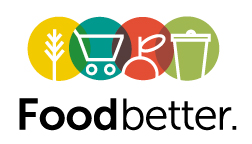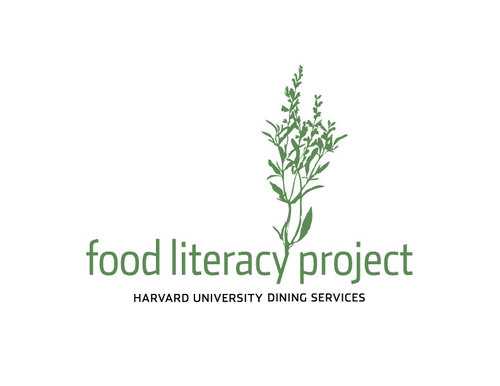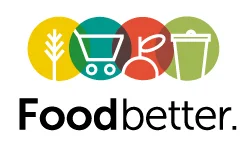A conference exploring the intersections between social, economic, and environmental justice and the food system
All panel, talk, and workshop descriptions are available in full in the PDF schedule
Short Schedule
Saturday, March 28
7:30–9:00am Registration
9:00–9:30am Welcome Address
9:40–11:10am Breakout Session #1
11:20–12:20pm Breakout Session #2
12:30–2:00pm Lunch Session
2:10–3:40pm Keynote Panel: The Human Right to Food
3:50–5:20pm Breakout Session #3
7:00-8:30pm Reception at Queen’s Head Tavern
Sunday, March 29
7:30–9:00am Registration
9:00–10:30am Breakout Session #4
10:30–11:00am Break—Poster Session
11:00–12:30pm Keynote Talk: National Food Plan
12:40–2:10pm Lunch Session
2:20–3:50pm Breakout Session #5
4:00-4:15pm Wrap-up
Full Schedule
Also available in PDF form
Saturday, March 28
Registration, 8:00–9:00 AM (and all day until 3:30pm)
Breakfast, 8:00–9:00 AM
Welcome Address, 9:00–9:30 AM
Milstein East — Welcome Address
Martha Minow, Dean & Professor of Law, Harvard Law School
Emily Broad Leib, Director, Food Law & Policy Clinic, Harvard Law School
Session 1, 9:40–11:10 AM
Milstein East — Farm Labor in the Food System
Panelists will explore the meaning of food justice as applied to farm workers from various perspectives, including legal rights, wages, immigration status, and wellbeing as producers. The panelists propose that, for a truly sustainable food system, society needs to make farm work—including farmers and all farm employees—a respected, fairly remunerated career that is recognized for the value food ultimately holds in society. *Co-sponsored by Harvard Law School Labor and Worklife Program
Panelists: Gilberto Lopez, Doctoral Student, Harvard School of Public Health (Moderator); Alberto Aguilera, Doctoral Candidate, University of California Davis; Elizabeth Henderson, Farmer; Board of Directors, Northeast Organic Farming Association of New York; Monica Ramirez, Civil Rights Attorney
WCC 1010 — The Changing Climate of Seafood
This panel will explore the connection between marine aquaculture and food justice through economics, ecology, and public health. The speakers will discuss the discrepancies in accessibility to seafood, as well as what policies are in place or should be in place to impact local, national, and international seafood distribution. Panelists will highlight the importance of creating resilient ecosystems to support the growing population’s demand for seafood, especially in the face of rapid climate change. *Co-sponsored by Harvard Environmental Law Society
Panelists: Barry Costa-Pierce, Professor & Director, University of New England Marine Science Center; Niaz Dorry, Coordinating Director, Northwest Atlantic Marine Alliance; Barton Seaver, Director, Healthy & Sustainable Food Program, Center for Health & the Global Environment, Harvard School of Public Health; Bren Smith, Executive Director, GreenWave; Owner, Thimble Island Oyster Co.
WCC 1015 — The Myth of Personal Responsibility and Corporate Manipulation of Consumers
Join this panel discussion to learn about the popular social myth that eating habits and health outcomes are the result of personal choice and responsibility. Find out why this myth is so powerful and pervasive and ignores the food industry’s manipulation of consumers through food labels, advertising, and chemical engineering of food products. Panelists will discuss methods for combating this myth to improve health outcomes. *Co-sponsored by Harvard Students Association for Law and Mind Sciences (SALMS.)
Panelists: Josh Golin, Associate Director, Campaign for Commercial-Free Childhood (Moderator); Jon Hanson, Professor of Law; Director, Project on Law & Mind Sciences, Harvard Law School; Sriram Madhusoodanan, Director, Value [the] Meal Campaign, Corporate Accountability International; Christina Roberto, Asst. Professor of Social & Behavioral Sciences and Nutrition, Harvard School of Public Health; Natasha Schvey, Postdoctoral Fellow, Uniformed Services University & National Institutes of Health
WCC 1019 — Power to the People: An Interactive Food Justice Workshop
Amber Burns, Asst. Director, New Roots Inc.
Come “Walk the Line” for food justice, discover what a “Fair Food Fight” is. This workshop will focus on the underlying social problems that lead to quality food being inaccessible to under-served populations and explore how to develop a more fair and just food system where all have seats at the table. This session will be loaded with interactive, thought provoking activities that will yield transformative discussion for both facilitator and participant. *Co-sponsored by the Harvard Black Law Students Association
WCC 1023 — Faith and Food Justice: A Workshop
Peter Buck, Interfaith Program Representative, Equal Exchange; Nuri Friedlander, Chaplain, Harvard Islamic Society; PhD Candidate, Harvard University; Rev. John Millspaugh, Executive Director, Beyond Carnism
During this workshop, three diverse presenters will reflect on organizing faith communities for food justice. They will highlight resources both for food justice proponents new to working with such communities, and for seasoned faith/interfaith organizers (nationally or locally). Brief presentations from speakers will be accompanied with interactive components, including exercises to articulate personal values underlying our relationships with food (whether secular or faith-based) and to translate these values into action as individuals and communities. *Co-sponsored by Harvard Law School Christian Fellowship
Session 2, 11:20 AM–12:20 PM
Milstein East —Lives on the Line: How Feeding America’s Chicken Habit Takes a Toll on Poultry Workers
As consumers demand increasing amounts of chicken every year (up to a record 86 pounds per capita), they rarely consider the people who process the animals that end up on their plates. A constant stream of the most vulnerable workers in the US make up this workforce, including primarily women, immigrants, and people of color, who endure poverty-level wages and significant health and safety risks on the job. We will describe the current state of the poultry industry, outline some solutions to address these conditions, and propose specific actions that conference participants can take to aid the cause.
Panelists: Oliver Gottfried, Senior Advocacy & Collaborations Advisor, Oxfam America; Rosa, Poultry Worker, North Carolina; Magaly Urdailes, Staff, Western North Carolina Worker Center
WCC 1010 — Food Oppression: How “Neutral” Food Law and Policy Creates Racial and Socioeconomic Health Disparities
Andrea Freeman, Asst. Professor of Law, University of Hawai’i William S. Richardson School of Law
This talk will focus on food oppression and examine how food laws and policies that are neutral on their face in fact disproportionately harm marginalized and subordinated communities, creating and perpetuating health disparities along race and class lines. It will explore the role of corporate influence on food policy, as well as how popular social values of personal responsibility and racial stereotypes make health disparities appear natural and structural reform seem irrelevant or futile. The session will highlight examples of food oppression and then identify other instances of food oppression that activists can challenge.
WCC 1015 — Food Justice in Africa
Robert Paarlberg, Professor of Public Policy, Harvard Kennedy School
Common themes of food justice in the United States—including localization of the food system; an emphasis on small, diversified, organic farms; and reduced dependence on corporate structures—do not translate well into Africa. In Sub-Saharan Africa, most food and farming systems are already fit these models, yet the results are distinctly unjust. Average income levels are less than $2 a day, and one out of three farmers in Africa remains chronically undernourished. This talk will discuss the different approaches to food justice that are required in Africa.
WCC 1019 — Why Does the Middle Matter? Transitioning to Just Food Systems for Rural American Farmers
Kathryn De Master, Asst. Professor of Agriculture, Society, & Environment, UC Berkeley
Within the alternative food movement, the critical issue of urban food justice increasingly receives the attention of scholars and advocates. Yet rural agricultural injustices are likewise deeply embedded in structural, economic, and racial inequities, which affect rural communities. This talk explores rural U.S. agricultural justice issues, highlighting ways that corporate control, vertical integration, and regulatory barriers impact small and medium-sized farmers and rural communities. We then explore potential solutions for fostering U.S. rural food justice.
WCC 1023 — Food for Thought: Youth Led Workshop About Food Systems and Food Justice
Rodney Sadberry, Gaurav Dangol, Debbie Jaques, and JP Pagan, The Food Project
Food For Thought is a one-hour youth-led introduction to food systems and food justice, facilitated by The Food Project's Root Crew. The workshop is highly interactive, as participants use their favorite meal as an entry point to learn about the impacts of a corporate controlled food system. The session will focus on the impacts of local and global food systems, farmworkers' rights, and what is really in some of the foods we eat. This session is particularly useful for beginners and those looking for replicable, interactive food systems activities.
Lunch Session, 12:30–2:00 PM
WCC 1010 — How Who We Eat Impacts Our Health (begins at 1:00pm)
Aysha Akhtar, Neurologist; Public Health Specialist, Oxford Centre for Animal Ethics
Dr. Akhtar will explore the diverse health consequences of factory farming, from infectious disease epidemics to chronic health issues. She will explain how many of our most urgent and pressing public health threats are connected with how animals are treated in food production and how there is a mutual benefit to both humans and animals when animals are protected. *Co-sponsored by Harvard Law School Animal Law Program
WCC 1015 — #quinoaguilt: Problems and Solutions for Conscientious Consumers (begins at 1:00pm)
Pilar Eguez, Postdoctoral Fellow, University of Illinois at Urbana Champaign
Lack of awareness about basic issues of global food politics and social privilege are informing new modalities of racism, classism, and First world, colonialist consumer practices and attitudes in the health conscious community. Based on case studies from Latin America, this presentation discusses problems and offers alternatives to pressing issues in the food and health world, including biocolonialism and appropriation of traditional resources, ethics and social responsibility, food gentrification, and food-guilt.
WCC 1019 — Food Chains screening; Introduction by Sanjay Rawal, Director; Screening of Homeland, a film from Perennial Plate by Daniel Klein.
WCC 1023 — Out Here screening; Introduction by Rachel Rybaczuk, PhD Student, Department of Sociology, University of Massachusetts-Amherst. *Co-sponsored by Harvard Law School Lambda
WCC B010 — Cowspiracy screening
WCC B015 — Open Sesame screening
Keynote Panel 2:10–3:40 PM
Milstein East — The Human Right to Food
Anderson and Lappé will share stories about the right to food—and the people and policies behind these stories—illustrating transformations achievable with sufficient political will. For example, Brazil’s reframing of food as a constitutional right has created channels for people to find their own solutions to food insecurity. Globally, the Committee on World Food Security has established new openings for civil society to engage with international food policy and regain control of the food system.
Panelists: Frances Moore Lappe, Author; Cofounder, Small Planet Institute; Molly Anderson, Partridge Chair in Food and Sustainable Agriculture Systems, College of the Atlantic
Session 3, 3:50–5:20 PM
Milstein East — Food Recovery as a Means to Food Justice
Between 33–40% of the food supply in the U.S. ends up in landfills. In addition to the significant environmental impact, this is particularly troubling when 1 in 6 Americans is food insecure, meaning they can't afford the food necessary to maintain a healthy, active life. Join leaders in the movement to recover wasted food in an engaging discussion about how innovative business models, non-profit strategies, and policy change can be used to address this pressing problem.
Panelists: Ona Balkus, Clinical Fellow, Harvard Food Law & Policy Clinic (Moderator); Emily Broad Leib, Director, Harvard Food Law & Policy Clinic; Sasha Purpura, Executive Director, Food for Free; Doug Rauch, Founder, The Daily Table
WCC 1010 — Storytelling as a Means of Food Justice Change
Narrative is a powerful tool for connecting the systems that produce inequalities with the individual lived experience of injustice. In addition to communicating this complex message, stories can be an effective way to mobilize people around social change. Come hear expert storytellers describe the successes and challenges in using storytelling as a means of promoting food justice in film and writing. A lively discussion will follow. *Co-sponsored by Harvard Law Documentary Studio
Panelists: Natasha Bowens, Author, The Color of Food; Daniel Klein, Filmmaker & Chef, The Perennial Plate; Sanjay Rawal, Director, Food Chains
WCC 1015 — Justice, Not Charity: Partnering with Low Income Communities on Food Security
This panel will explore why shifting the model of change from patron to partner is an investment in leadership and capacity building for dis-empowered communities on issues of food justice, security, and sovereignty. Working with historically oppressed communities sets the stage for a movement toward real change and justice shaped by the people whose lives are most deeply affected by injustice and inequality. Panelists will address the challenges and benefits of “outsiders” working on these issues, the role of privilege in social justice work, and ensuring that the community is the leader of its own movement.
Panelists: Alexandra Jordan, Food Law Society, Harvard Law School (Moderator); Amy Laura Cahn, Garden Justice Legal Initiative, Public Interest Law Center of Philadelphia; Ellen Parker, Executive Director, Project Bread; Sunny Young, Director, EduFood Consulting
WCC 1019 — Restaurant Worker Rights Workshop
Ariel Jacobson, Development & Communications Director, Restaurant Opportunities Centers (ROC) United; Alex Galimberti, Lead Organizer (Boston), ROC United
With nearly 11 million workers, the restaurant industry is one of the largest and fastest-growing employers in our economy. But did you know that servers experience poverty at three times the rate, and use food stamps at double the rate, of the rest of the U.S. workforce? Join the Restaurant Opportunities Centers (ROC) United for an interactive workshop about challenges and opportunities for restaurant workers, and how to create change using your power as a consumer. *Co-sponsored by Harvard Law School Labor and Worklife Program
Reception, 7:00–8:30 PM
Queen’s Head Pub, 45 Quincy St, Cambridge, MA
A chance for to get to know attendees and presenters at the Just Food? Forum. Featuring live music by Só Sol! Complimentary snacks will be available, and alcoholic drinks will be available for purchase. *Co-sponsored by Harvard Business School Food, Beverage, and Agribusiness Club
Sunday, March 29
Registration, 8:00–11:00 AM
Breakfast, 8:00–9:00 AM
WCC 1010 — Women in Food Justice Networking Breakfast
*Co-sponsored by Harvard Women’s Law Association Venture Fund
Session 4, 9:00–10:30 AM
Milstein East — The Whitest Profession: Combating Racial and Class Inequality in American Agriculture
This panel will begin with narratives of farmers of color and segue into a discussion of how modern U.S. agricultural policy was shaped in crucial ways by Southern elites during the Jim Crow era, leading to massive land loss among black farmers. Panelists will then highlight two contemporary programs that address the racial and economic inequality in land ownership and the farming profession. *Co-sponsored by the Harvard Black Law Students Association
Panelists: Nathan Rosenberg, Fink Food Fellow, Natural Resources Defense Council (Moderator); Natasha Bowens, Author, The Color of Food; Chris Brown, Executive Director, Agriculture and Land-Based Training Association; Jennie Stephens, Executive Director, Center for Heirs’ Property Preservation
WCC 1010 — Gender Politics in the US Food System
This panel will explore gender politics in the US food system. Topics include: The Ecofeminist Farmer: Environmentalism, Agriculture, and Gender Equity in the 21st Century; Just Add Water: Selling Food, Convenience, Gender Constructs, and Homogeneity to America; This is What a Farmer Looks Like; and Down on the (Heteronormative) Family Farm: Representations of Gender in Farming. *Co-sponsored by Harvard Women’s Law Association Venture Fund
Panelists: Leah Kirts, New York University; Marilyn Morgan, University of Massachusetts Boston; Melina Packer, University of California Berkeley; Rachel Rybaczuk, University of Massachusetts Amherst
WCC 1015 — The Role of the University in Food Justice
Universities like Harvard have a long and complex legacy of food injustice. How do we use the power and privilege that these institutions afford to work towards a more just food system? What are the opportunities for change and where are the challenges? Do we have an obligation to use our disproportionately privileged voice to push for changes in our university and agricultural systems? How do we involve those who are most affected by and left out of both our good food economy and our higher educational system? This panel will explore these questions and more through the purchasing power of universities, student organizing, college debt forgiveness, and more.
Panelists: Gary Adamkiewicz, Asst. Professor of Environmental Health & Exposure Disparities, Harvard T.H. Chan School of Public Health (Moderator); Sophie Ackoff, National Field Director, National Young Farmers Coalition; Simca Horowitz, Program Director (Eastern MA), Massachusetts Farm to School; Anim Steel, Executive Director, Real Food Challenge
WCC 1019 — Feeding Captive Audiences
This panel will address the challenges and responsibility that come with serving food to people who have varying degrees of agency, control, or choice as to the food they eat. Panelists will focus on food programs such as those for public schools, healthcare settings, and homebound people. *Co-sponsored by Harvard Law School Advocates for Education
Panelists: John Cook, Assoc. Professor of Pediatrics, Boston University School of Medicine; Senior Research Scientist & Principal Investigator, Children’s Healthwatch (Moderator); Chef Kate Adamick, Founder, Cook For America; Marydale Debor, Founder & Managing Director, Fresh Advantage; David Waters, CEO, Community Servings
Poster Session Break 10:30–11:00 AM
Keynote Talk 11:00–12:30 AM
Milstein East — A National Policy for Food Health and Wellbeing in a Changing Climate
Ricardo Salvador, Director, Food & Environment Program, Union of Concerned Scientists; Introduction by Jacob Gersen, Professor of Law; Director, Food Law Lab, Harvard Law School
Agriculture is structurally designed to exploit people and nature. This is sanctioned by policies and practices in immigration, labor, land tenure, taxation, and environmental regulation. Historical antecedents to our modern exploitative system include land grabbing, genocide, slavery, systematic alienation, and wealth transfer. Agriculture as we know it today would not exist without these oppressive systems, yet this need not be the case. We could value the labor, property, health, environmental quality, and future prospects of all people and sectors equally. This aspiration is the very core of the American ideal, but anathema to the way the economy actually operates. National policy—spurred by the increasing untenability of dominant agricultural models and the environmental impact and economic inequality produced by climate change—can shape a different and brighter reality for the 21st century.
Lunch Session 12:40–2:10 PM
Milstein East — Bringing U.S. Latinos into the Sustainable Food Economy: The end of nutrition sciences as we know it (begins at 1:10pm)
Karla Blaginin, Executive Director, Dichos de la Casa
In the sustainable food sector, the diversity impact will mean rearticulating conceptual ideas of health and well-being. As a first-generation American Latina, mathematician, statistician, and academically-educated sociologist, I am pro-actively bridging Latino food culture into the intellectual awareness of community food organizations. This means deconstructing nutrition science’s notion of food as an entity separate of its social and environmental space. My study, Dichos de la Casa, will override commercial acculturation practices and produce liberated sustainable eaters. *Co-sponsored by La Alianza at Harvard Law School
WCC 1019 — Food Chains screening
WCC 1023 — Out Here screening
WCC B010 — Cowspiracy screening
WCC B015 — Open Sesame screening
Session 5, 2:30–3:50 PM
Milstein East — Climate Change and Agriculture
This panel will investigate the relationship of climate change and agriculture, questioning whether it is best to adapt existing systems to be more prepared for climate change, or whether a whole new infrastructure to the food system is necessary. Topics will include an overview, mitigation strategies, impacts of climate change on agriculture, and forms of adaptation. The panelists will speak on these topics with Q&A in between each.
Panelists: Nathan Mueller, Ziff Environmental Fellow, Center for the Environment (Moderator); Rachael Garrett, Postdoctoral Research Fellow in Sustainability Science, Harvard Kennedy School of Government; Sarah Hill, M.A. Student, Boston University; Will McCaffrey, Cranberry Farmer, Spring Rain Farm in Taunton, MA
WCC 1010 — Cultivating Change: Visioning and Planning the Food System in New England and Massachusetts
This panel will explore efforts in New England and Massachusetts to use food system planning to create a strong, resilient, and just food system. Panelists Joanne Burke of UNH will speak about the New England Food Vision; MDAR Commissioner John Lebeaux will provide a snapshot of agriculture in Massachusetts and the state Food Policy Council; Winton Pitcoff, project manager for the Massachusetts statewide food system planning process, will discuss how the planning process is working toward a just food system in Massachusetts.
Panelists: Alli Condra, Senior Clinical Fellow, Harvard Food Law & Policy Clinic (Moderator); Joanne Burke, Professor of Sustainable Food Systems, Sustainability Institute, University of New Hampshire; John Lebeaux, Commissioner, Massachusetts Department of Agricultural Resources; Winton Pitcoff, Project Manager, Massachusetts Food System Plan, Metropolitan Area Planning Council
WCC 1015 — Bridging the Gap: How to Make Just Food Affordable for Farmers to Grow and Consumers to Buy
This panel will explore several models that are successfully connecting peri-urban farmers to urban consumers. These enterprises have developed systems to support farmers struggling to make a living while also providing fresh, healthy, local produce to low-income urban populations.
Panelists: Rebecca Berkey, Associate Director & Service-Learning Coordinator, Northeastern University (Moderator); J. Harrison, Director, The Food Project; Jennifer Hashley, Executive Director, New Entry Sustainable Farming Project, MA; Karyn Moskowitz, Executive Director, New Roots, KY; Peter Rogers, Professor of Environmental Engineering and Applied Sciences, Harvard University
WCC 1023 — Logic of the Plantation: Slavery, the University, and the Food System
Elizabeth Rucker, Northeast Ground Organizer; Drew Love, Assistant Northeast Coordinator, Real Food Challenge
This workshop pinpoints the slave trade as the genesis of the modern university and the industrial food system, using Harvard as a case study. Through storytelling and audience interaction, we examine how the logics animating the food system and the university today continue to materially support human and environmental injustice. From here, we build the case that it is our moral responsibility to change institution’s purchasing practices to support a just and sustainable food system. *Co-sponsored by the Harvard Black Law Students Association





